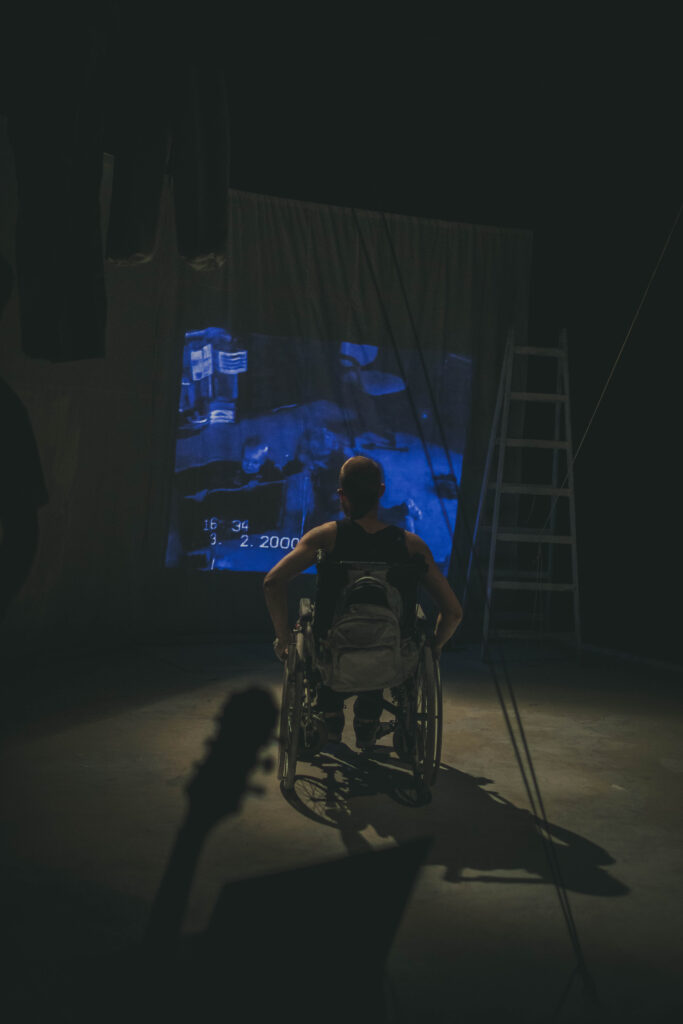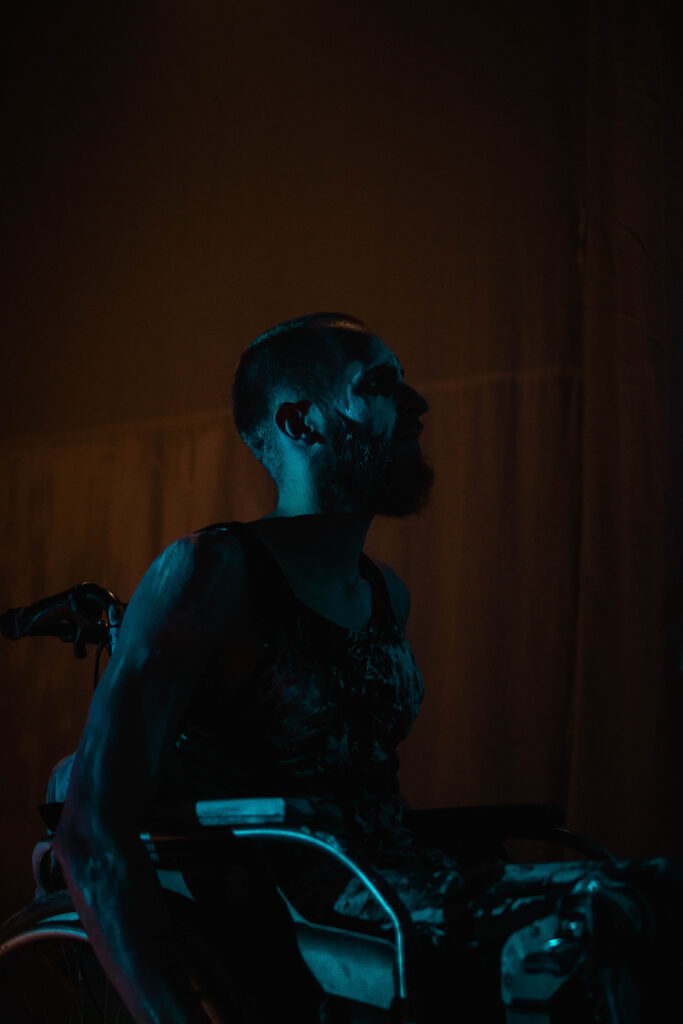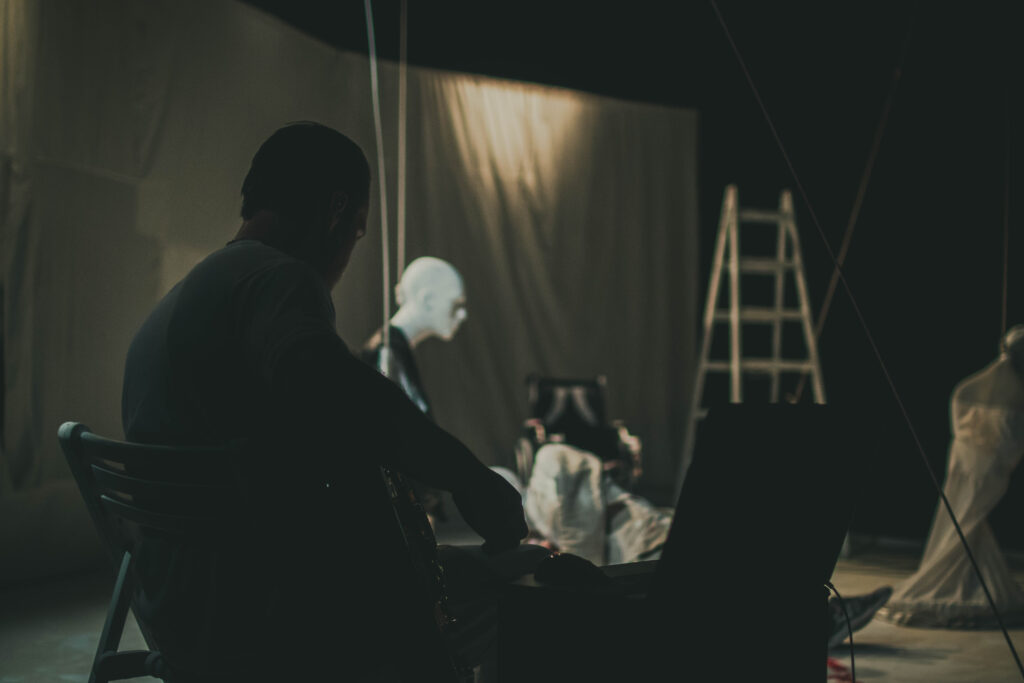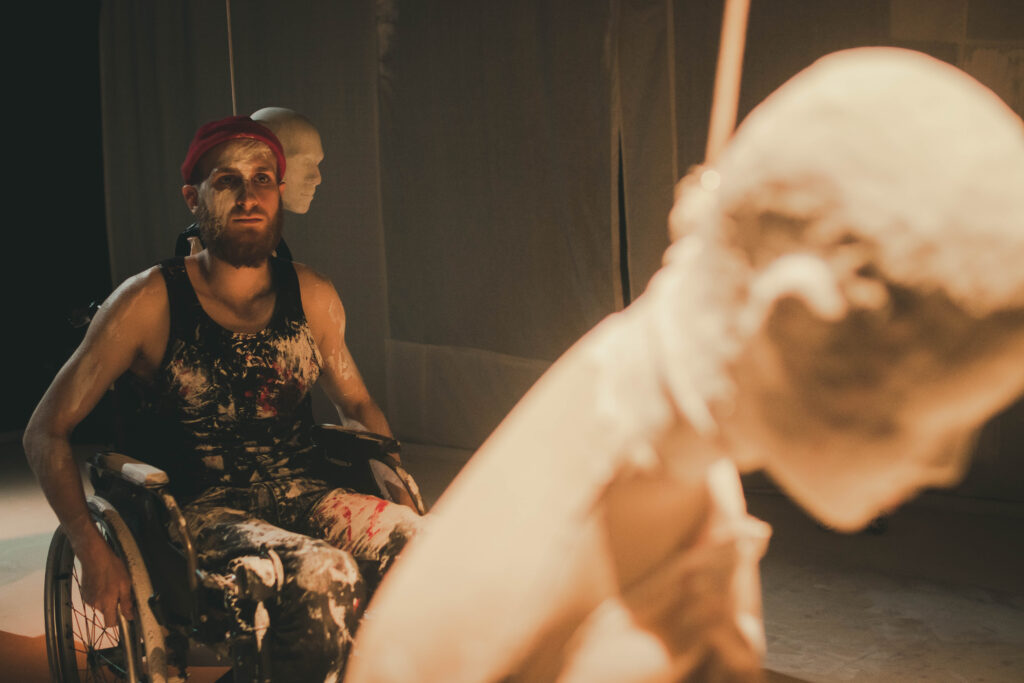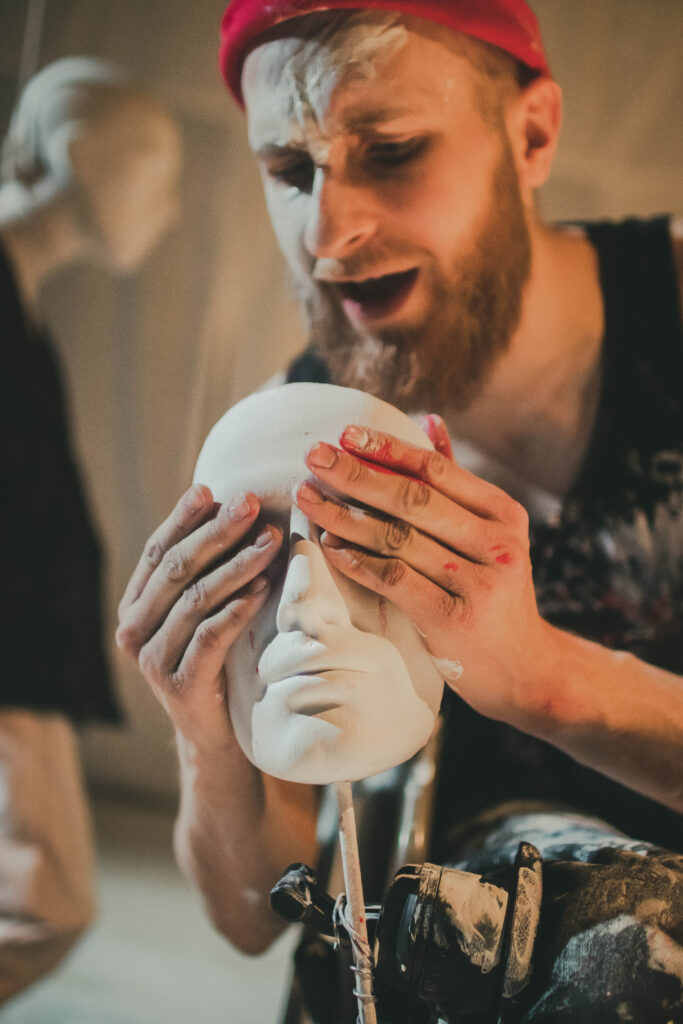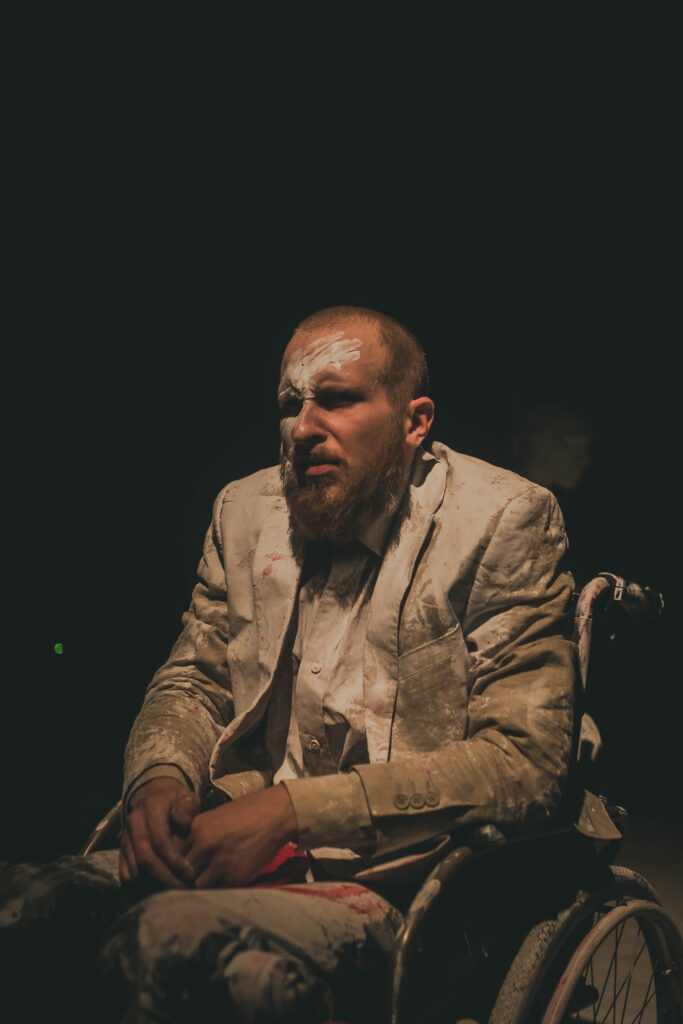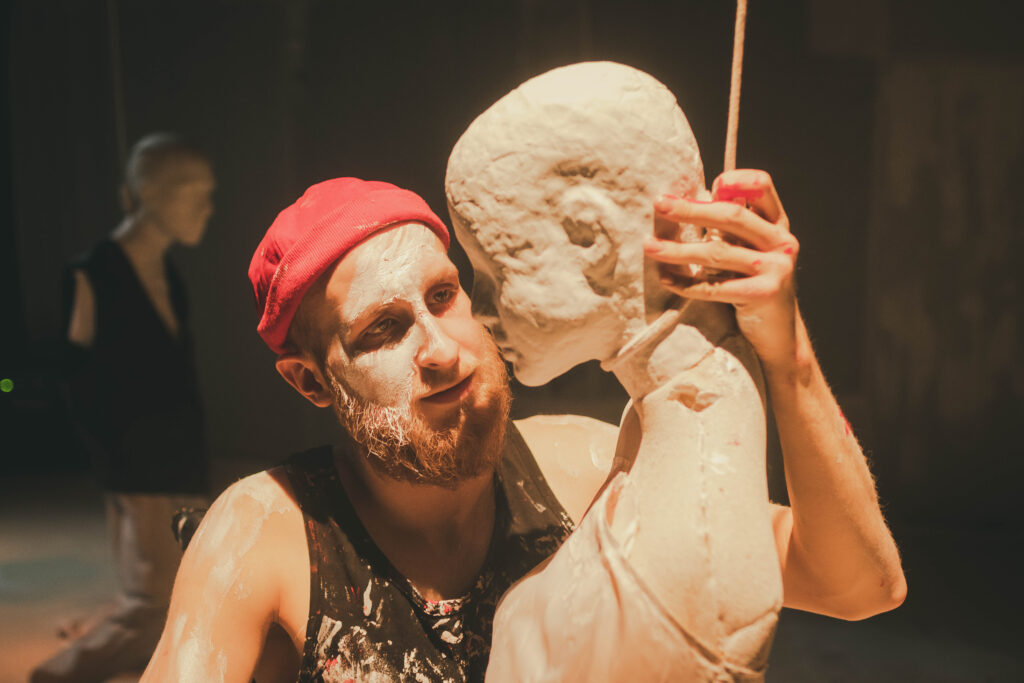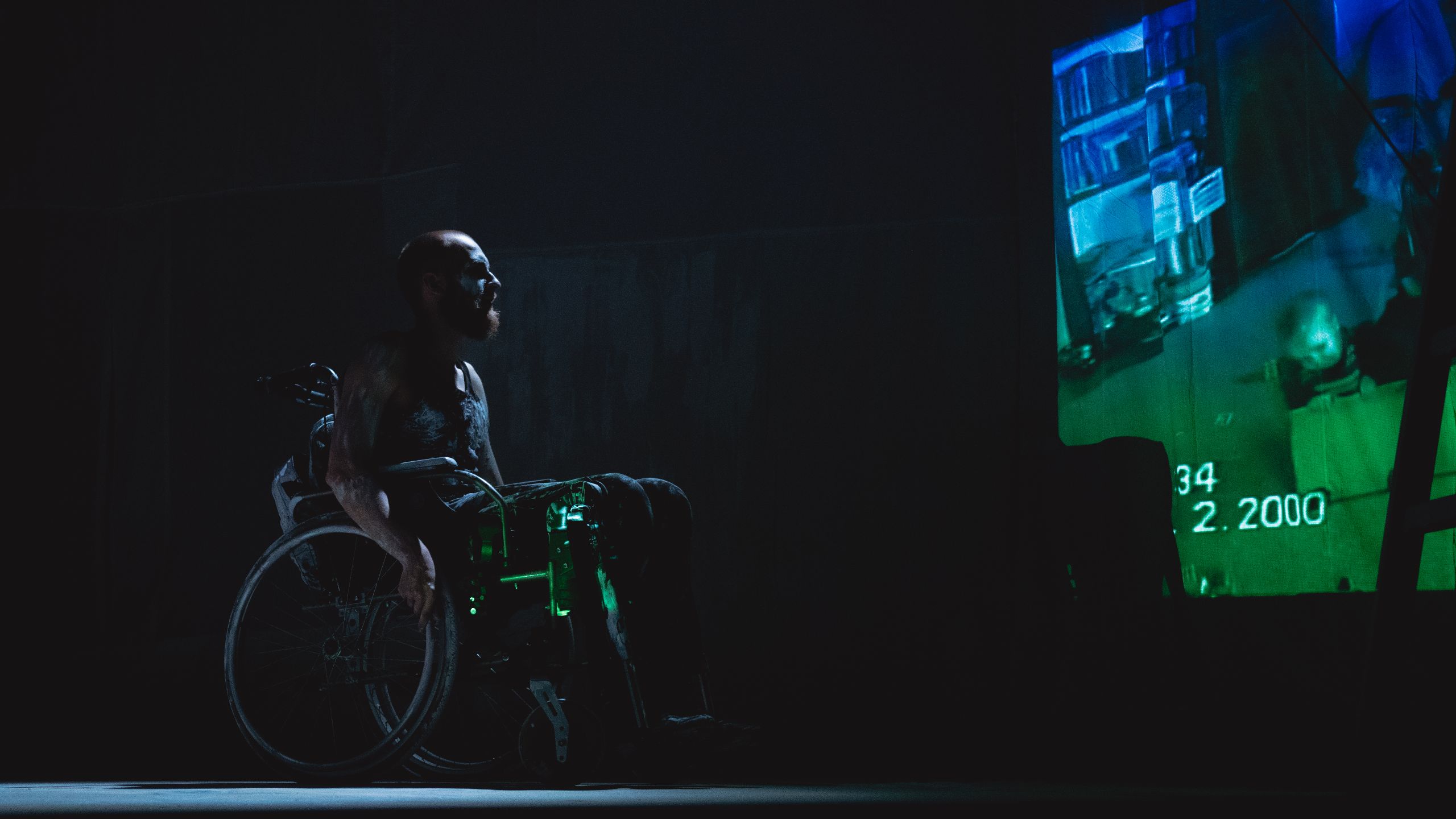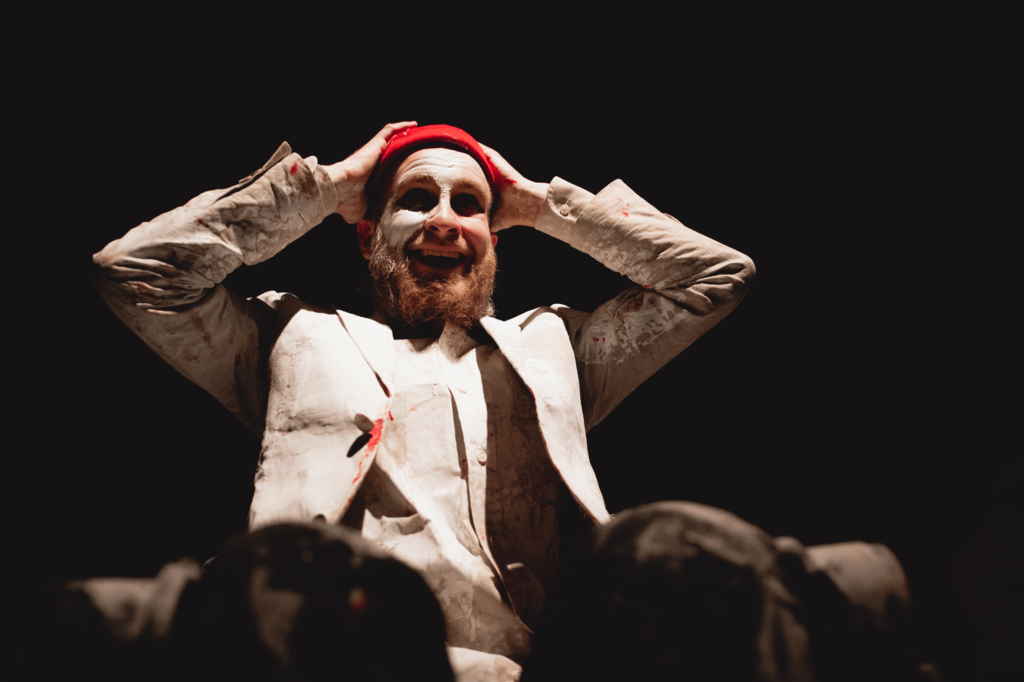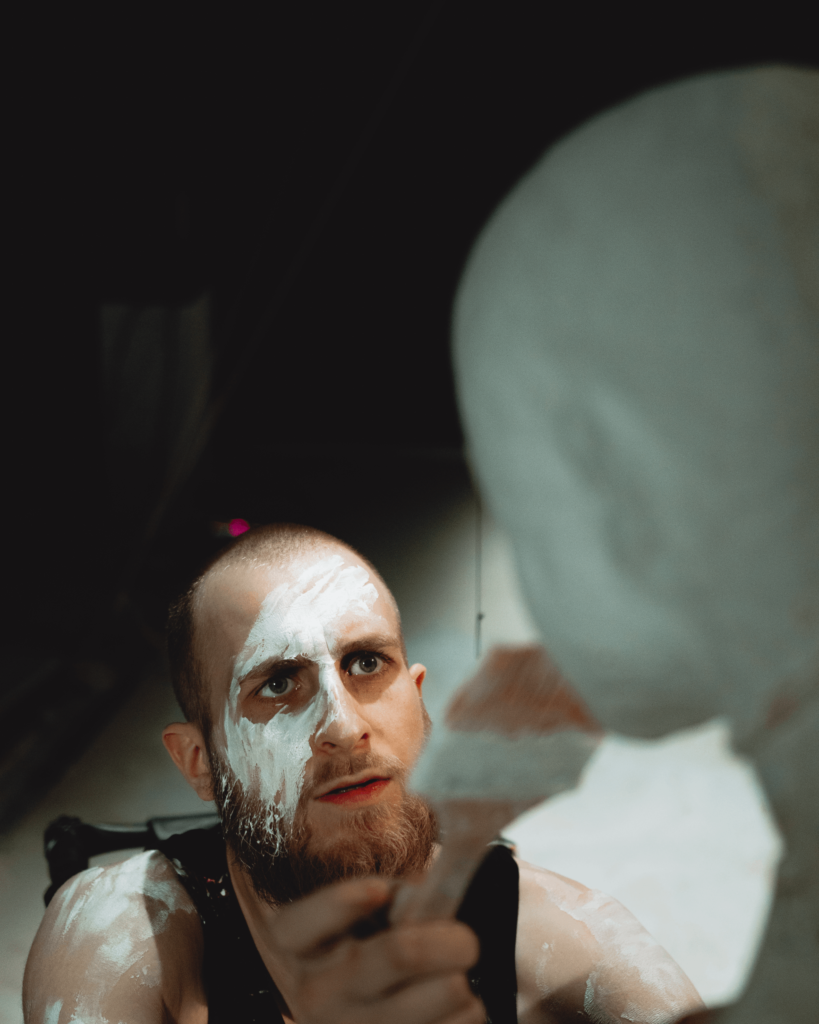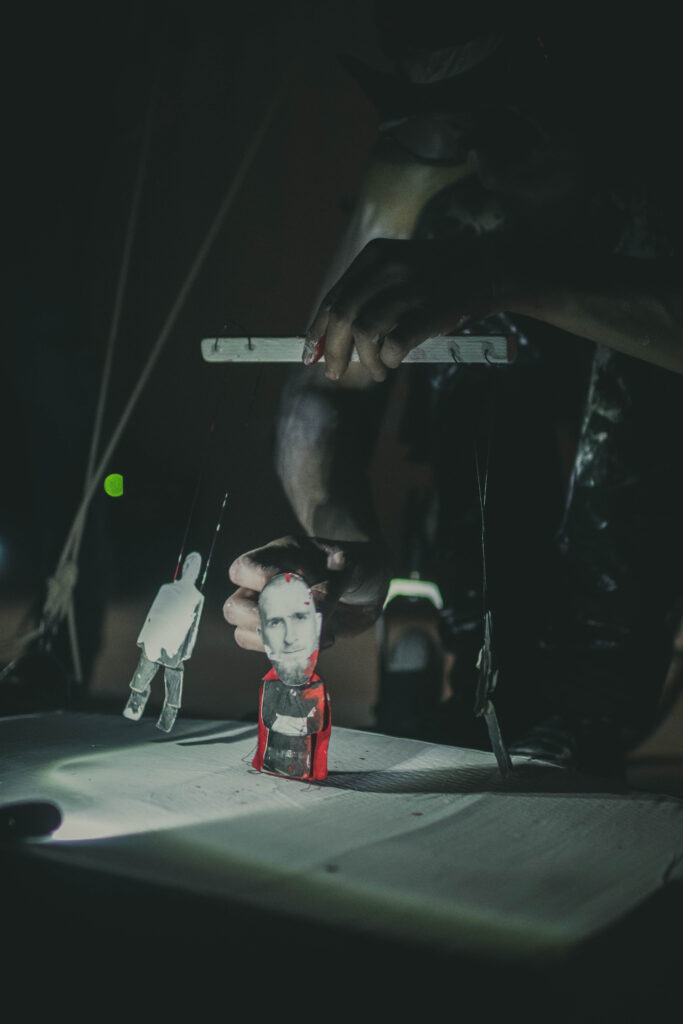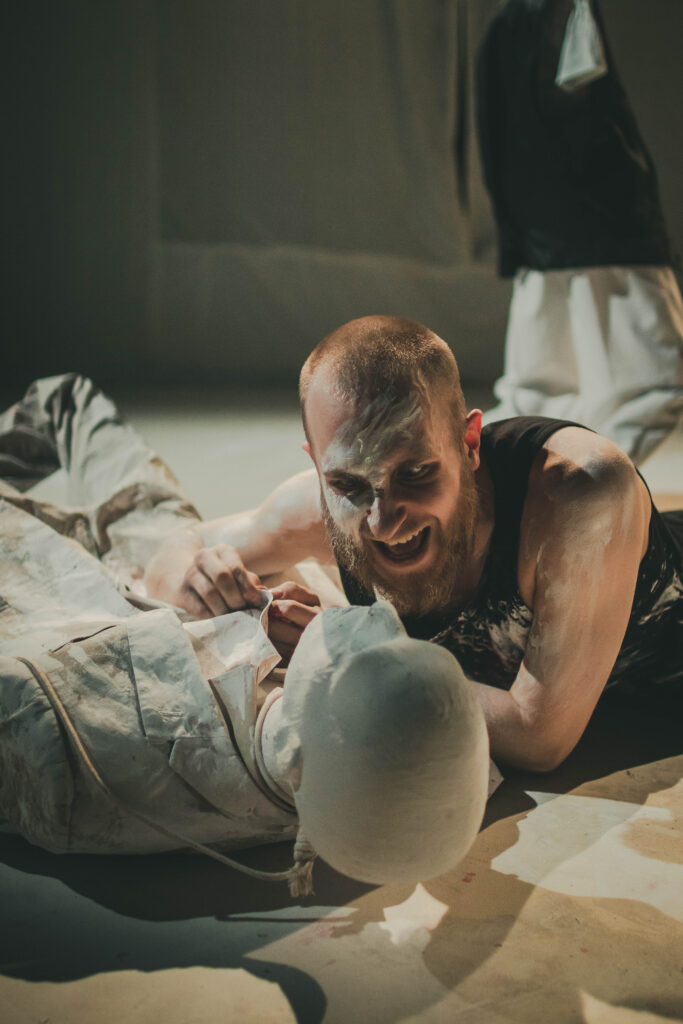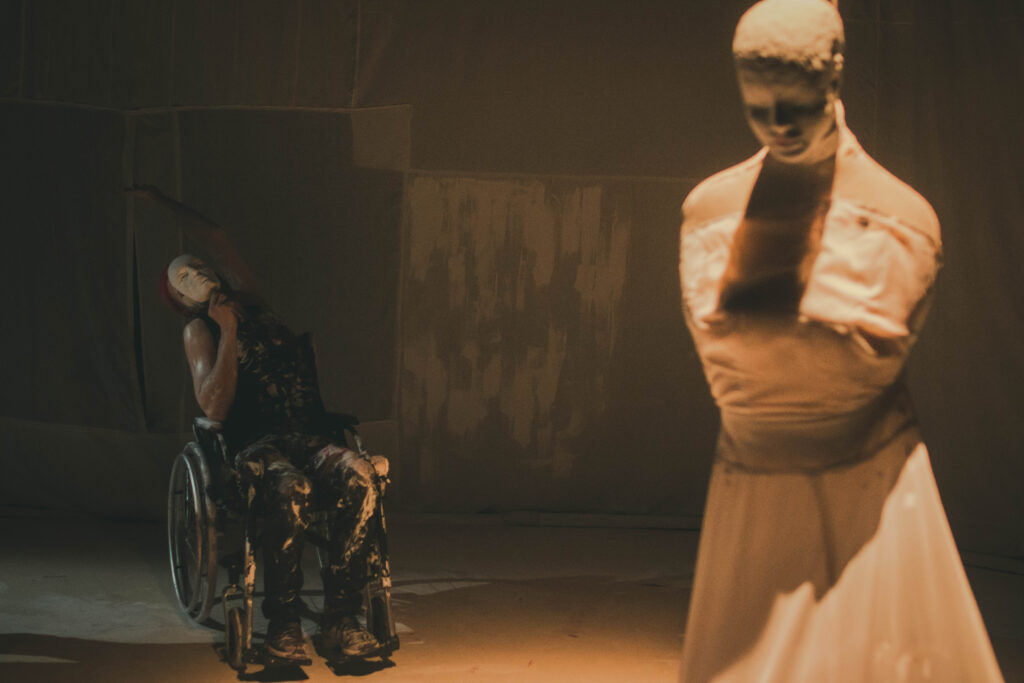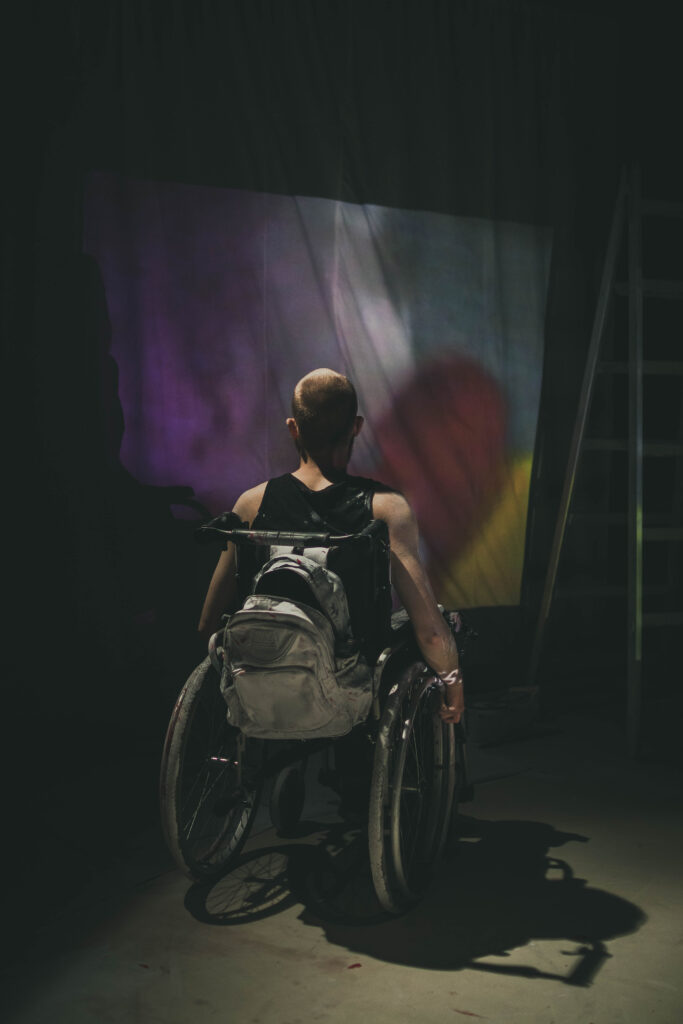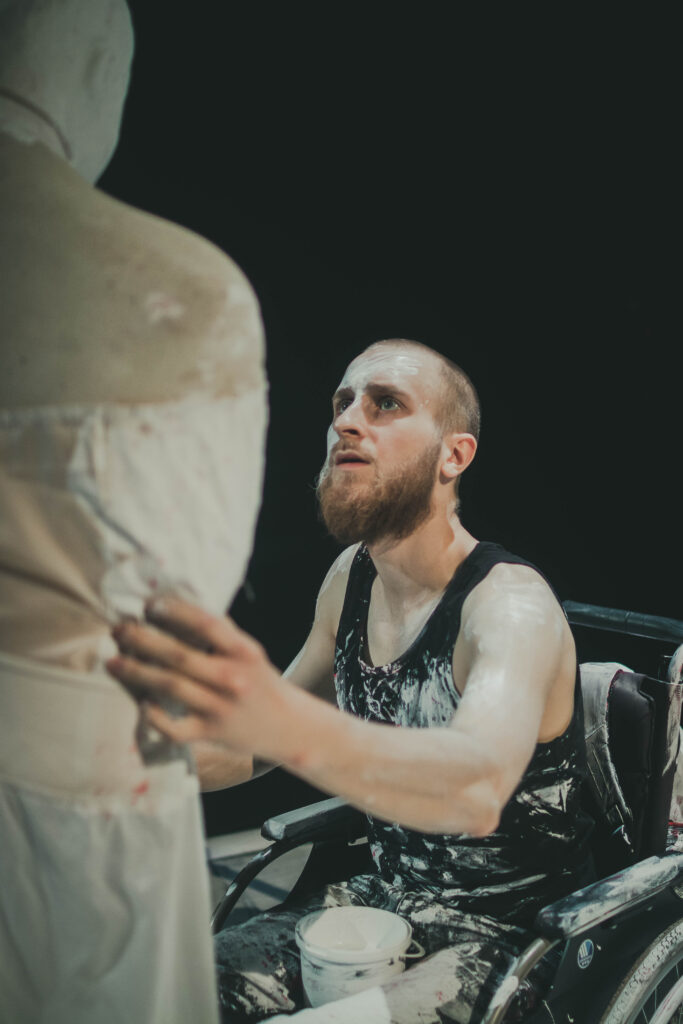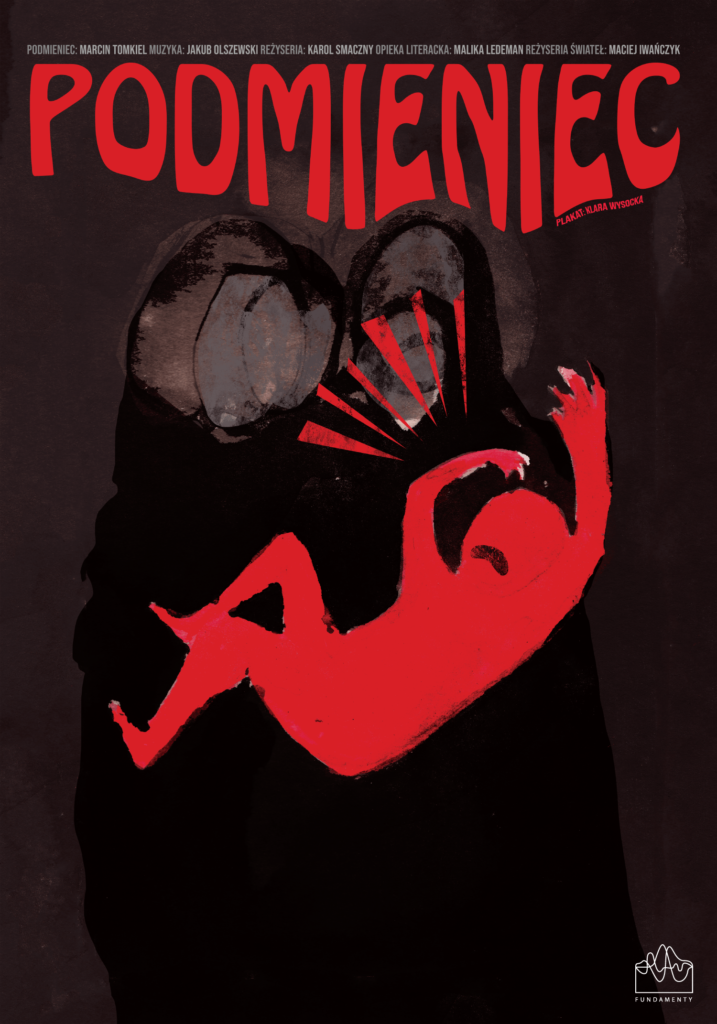
Stop. Pause the action. What if you changed your perspective for a moment? Step aside and look at reality from an entirely different angle. “Podmieniec” is a story about otherness. Otherness that doesn’t always meet with social acceptance, even though it is an inseparable part of the world around us.
According to ancient beliefs, the titular character is the child of forest nymphs, bogeywomen, or other Slavic demons who would take infants from their cradles, leaving their own in their place. “Turn your gaze away!”, “Starve it!”, “Get rid of the fiend!” — doesn’t that sound oddly familiar?
podmieniec: Marcin Tomkiel
music by: Jakub Olszewski
directed by: Karol Smaczny
songs lyrics by: Malika Tomkiel
lighting design by: Maciej Iwańczyk
poster by: Klara Wysocka
photographed by: Ania Dakowicz, Hubert Pezowicz
Podmieniec is my debut. It is also one of my final exams at the Theatre Academy in Białystok, which was an integral part of my master's thesis titled "Disability in Theatre: Ways of Expression and Perception". Podmieniec is a puppet monodrama with live music. It is also the result of experiences gained from working in environments at risk of social exclusion. Podmieniec is the story of Marcin, a man who placed his faith too deeply in Shakespeare's words.
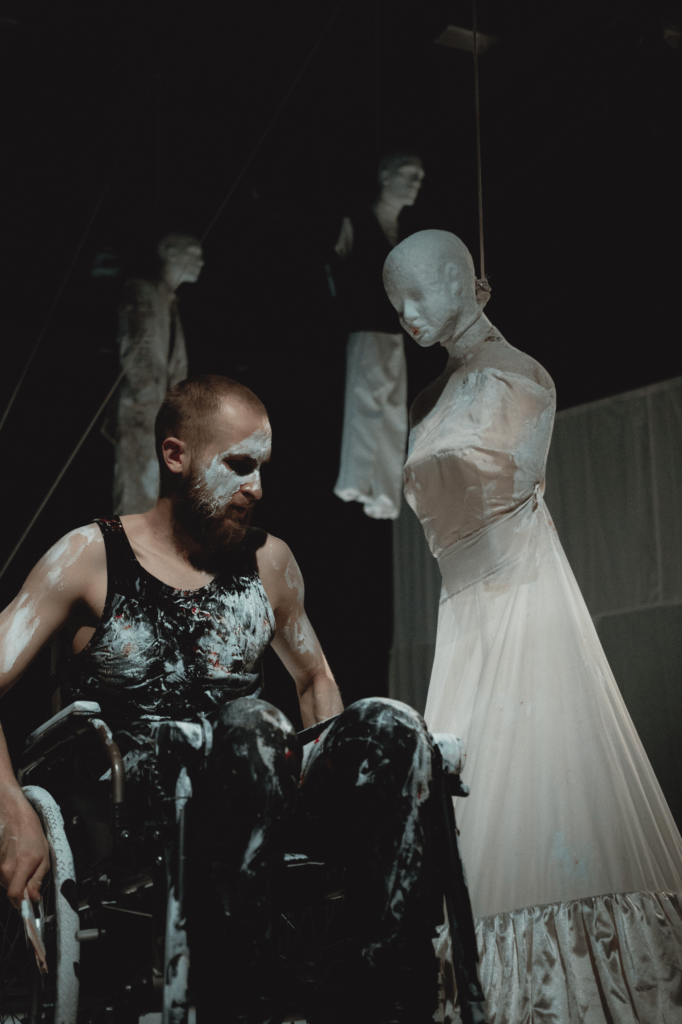
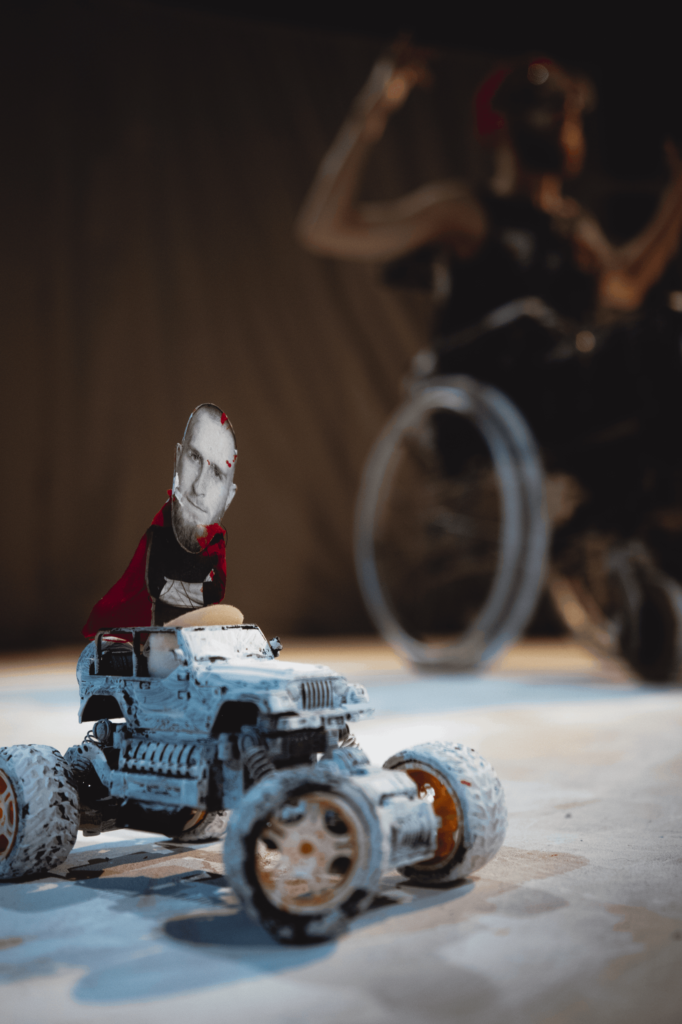
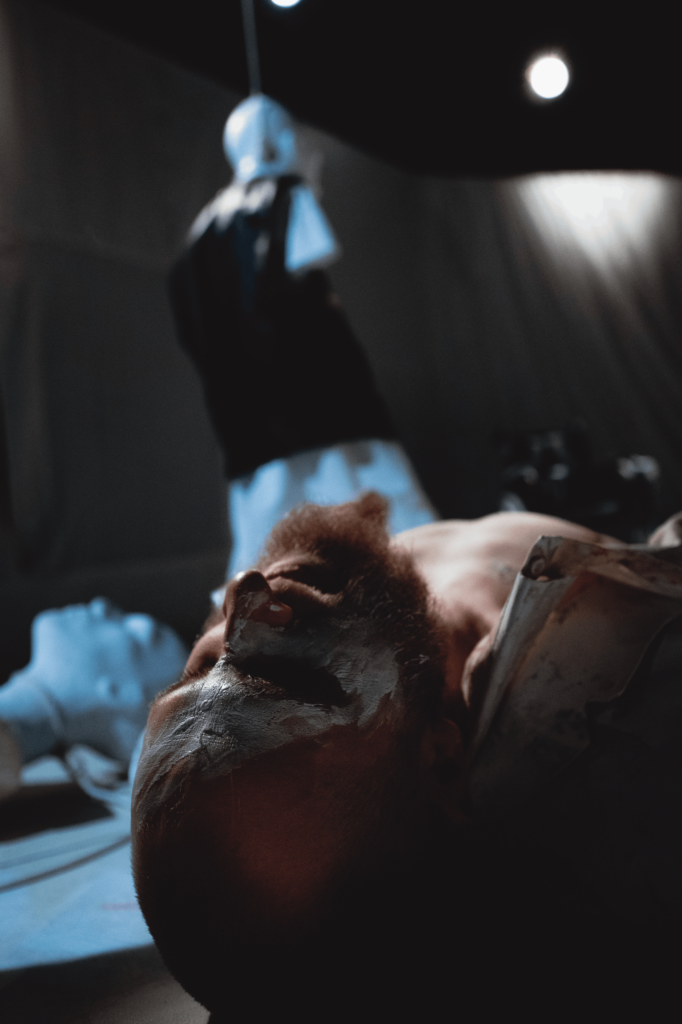

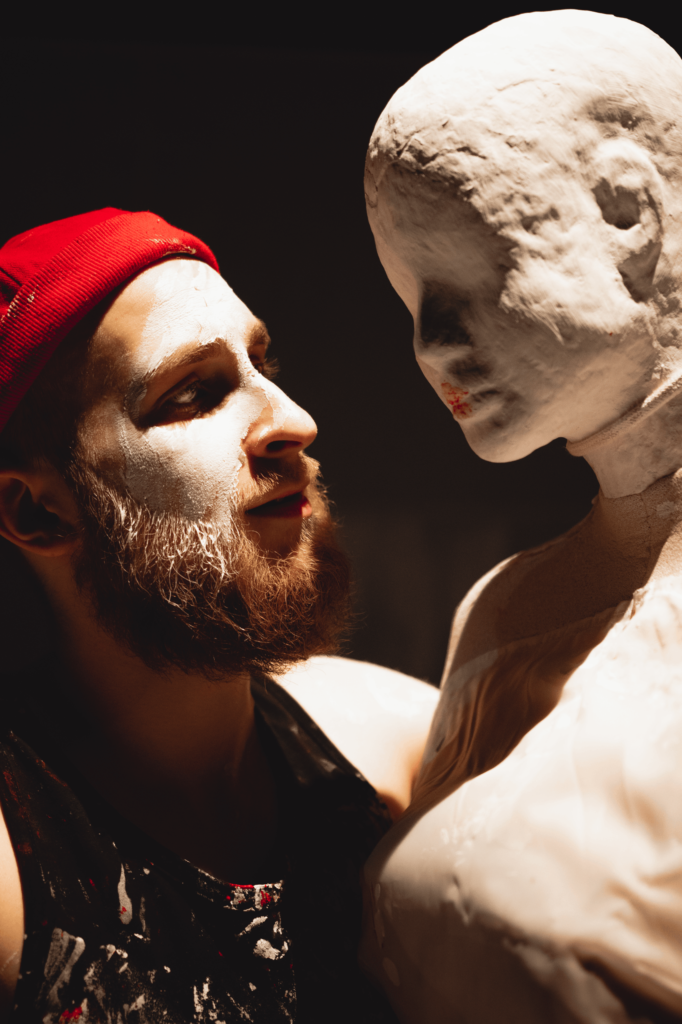
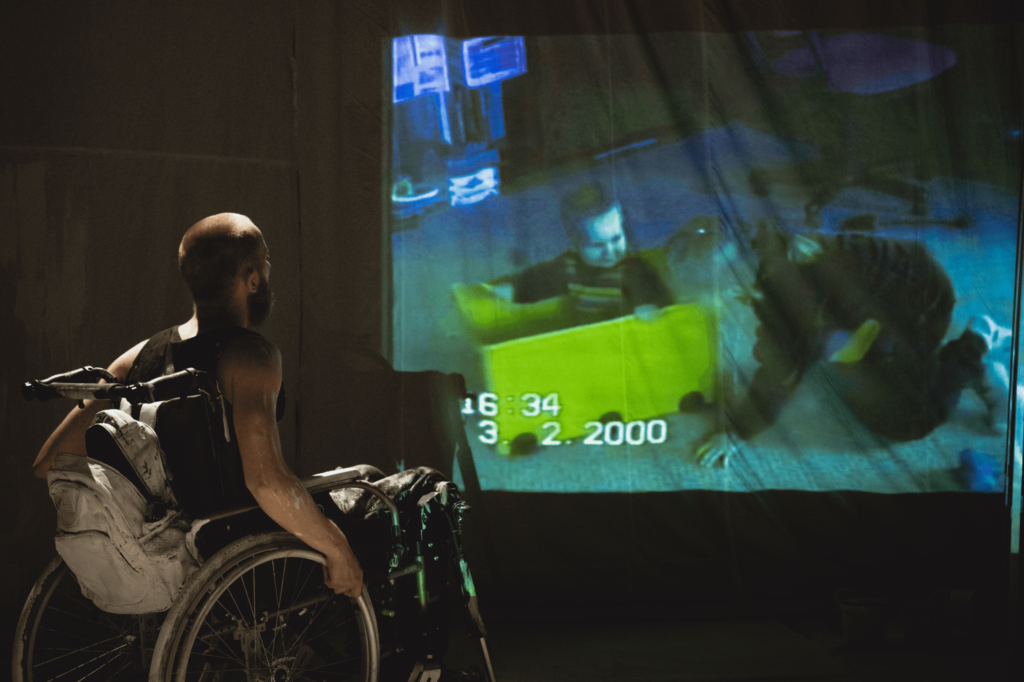
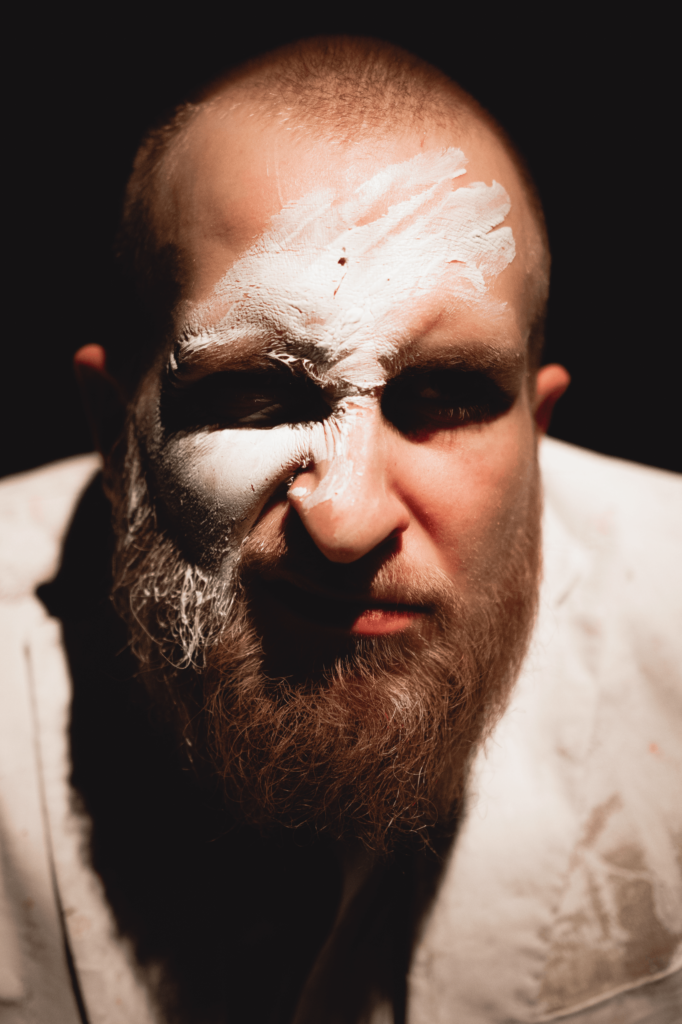
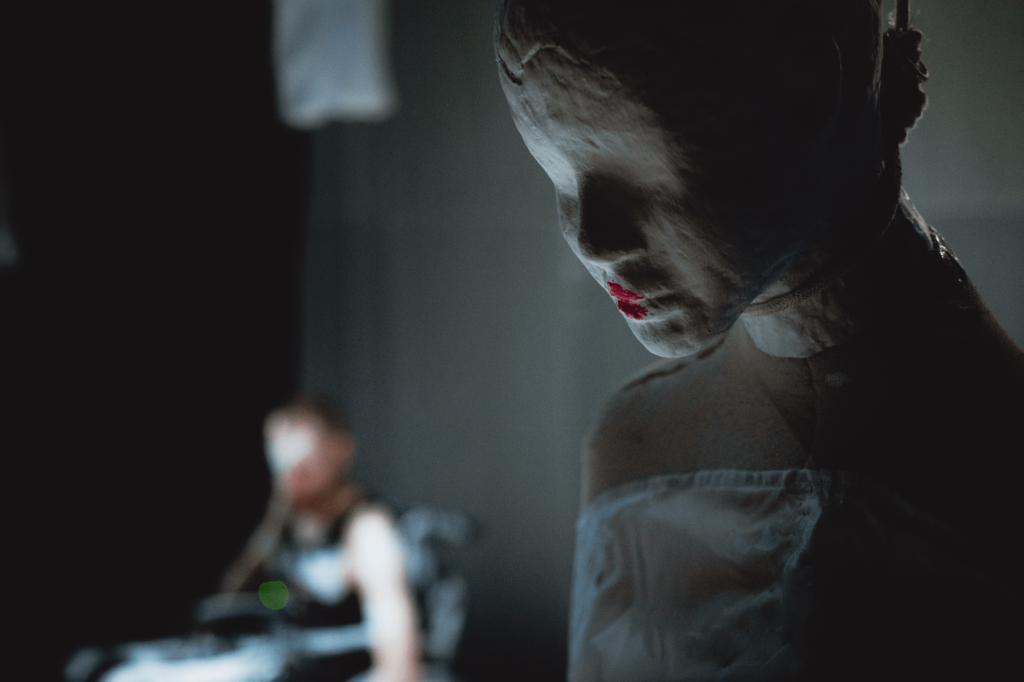
FESTIVALS
The performance presented at:
– XV International Puppet and Animated Film Theatre Festival for Adults "Lalka też Człowiek" 2021,
– IV edition of the International Puppet Theatre Festival for Adults "Metamorfozy Lalek" 2021.
REVIEWS
Today a bit about Podmieniec, whose premiere as part of the "Metamorfozy Lalek" festival took place yesterday. Perhaps this performance is a preview of the future theatre group Smaczny – Tomkiel. Time will tell. Both artists have considerable potential, and their talents are extraordinary. Karol Smaczny has two decades of puppet theatre experience behind him, starting in the student group DZRT and remaining loyal to independent theatres, being closely associated with the Wierszalin Theatre, and later with TrzyRzecze Theatre. He has also collaborated as a director and actor with dramatic and puppet stages in various cities. Marcin Tomkiel is just approaching the final stage of his puppet theatre studies at the Białystok branch of the Theatre Academy. Both have long been deeply involved in working with marginalized, disabled communities and people who deviate from socially accepted norms. And Podmieniec by Tomkiel is about such a person – Marcin, who is trapped in a wheelchair and refuses to renounce the right to belong to the world around him.
A good, concise, sharp text by Tomkiel, emphasizing the most important issues of the lack of acceptance for otherness, corrected with a literary eye by Malika Ledeman, is complemented by excellent songs with lyrics by Ledeman, set to music composed by Jakub Olszewski, who accompanied the performance live. Karol Smaczny directed the entire piece and, along with Tomkiel, is the author of the puppets and the stage. The life-sized puppets, closer to mannequins, are suspended on wires high above the stage, forming an attractive entourage. When needed, they descend, entering into various interactions with the actor.
The action takes place in a modest space, neither an apartment nor a workshop, shielded in the back by a white canvas, on which the protagonist, in the first sequences, watches frames from an old video recording showing playing children. Could he be watching himself as a child? Somewhere along the way, an accident must have happened that confined him to a wheelchair. But Marcin did not give up on his intellectual and artistic passions. He was, however, advised against applying to drama school. An actor in a wheelchair – impossible! Yet, he did not give up on the world of theater. He delved into literature and built his own tiny homemade paper theater, where he himself, little Marcin, is a small cardboard figure with whom the protagonist dialogues. This little Marcin is hung on a string reaching down to the wheelchair, and the actor occasionally converses with him, changing only his voice. To play a scene with other theatrical characters, Hamlet and Macbeth, he performs acrobatic feats, crawling across the floor. This is one of the most striking scenes requiring considerable physical dexterity.
The performance evokes several images that point out the lack of acceptance for difference. Natalka (one of the puppets initially hanging above), Marcin's youthful love, firmly and ruthlessly abandons the disabled man when he confesses his feelings. A superbly acted scene is the conversation between Marcin and a potential employer. Tomkiel plays two characters simultaneously, not only changing the tone of his voice but also quickly altering his facial expressions, physically creating two distinct characters, although he only removes or puts back on a red knitted hat. The colors red and white appear in various situations: in the actor's facial makeup and in the characters' costumes. Red is probably always associated with some act of violence, aggression, but it’s hard to escape the suggestion that it is also a part of our national colors, that everything happening on stage is somehow a reference to a specific Polish situation and context.
The excellent song lyrics highlight widespread intolerance. Tomkiel performs them in various ways. Sometimes they are forceful protests, at other times almost lyrical lullaby-ballads. Olszewski's music sometimes pierces the listener’s ear, only to soothe and calm emotions moments later, yielding to the transient mood. The lighting by Maciej Iwańczyk is also beautiful, as he has the technical capabilities on the BTL stage to build the drama of events.
In the finale of the performance, and somewhat to the surprise of the audience, Tomkiel rises from the wheelchair. After performing a wonderfully choreographed movement sequence, he throws himself into the gap between the white canvases of the horizon, as if jumping out of a window. Or maybe he really flew away, cutting the fragile thread that connected him to everyday life, allowing us to imagine his dreams and committing suicide? This is one of the interpretative possibilities, realized with great class and yet strongly plausible.
I hope that this performance reaches a wide audience across the country. It is not only artistically attractive but also addresses the increasingly prevalent topic of disability, social acceptance, and equal opportunities, telling the story with exceptional culture, taste, kindness, and empathy. Before leaving the theater, we experience a form of catharsis, which is truly rare in contemporary theater.
– Marek Waszkiel | source
